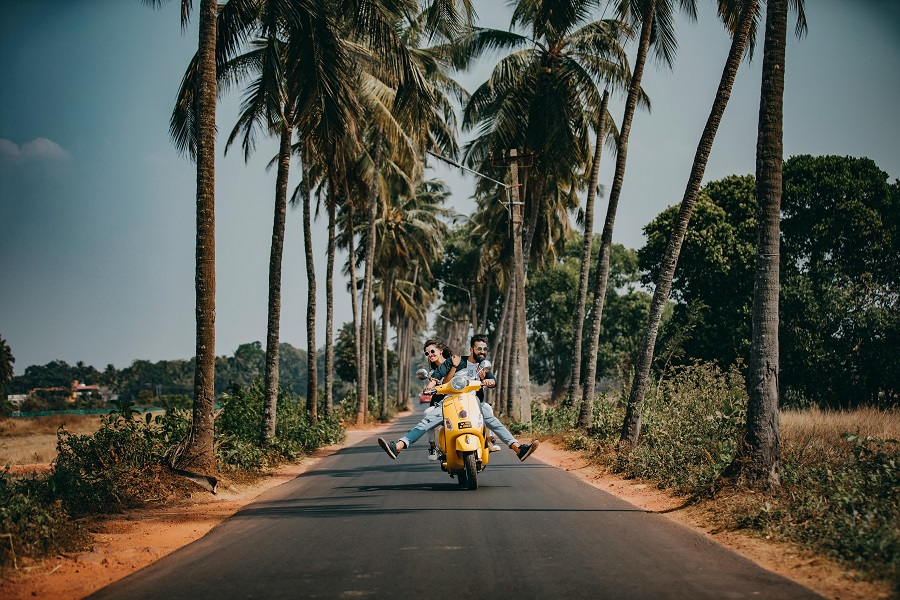
Follow us Now on Telegram ! Get daily 10 - 12 Interesting Updates. Join our Telegram Channel https://t.me/OhWomen
Download Telegram App before Joining the Channel
Traveling opens up a world of adventure, cultural exploration, and personal growth. However, ensuring your safety is crucial to make the most of your trip. Whether you're traveling for leisure, business, or a long-awaited vacation, being aware of safety practices can help you avoid unexpected situations and enjoy a stress-free journey. Here are some key travel safety tips to keep in mind for a secure and enjoyable experience.
1. Plan and Research Ahead
Before you embark on any trip, thorough planning is essential to ensure safety at every step. Research the destination for any potential safety concerns, including political instability, natural disasters, or health risks like pandemics or specific diseases. Understanding the local culture, customs, and language can also help you feel more confident and avoid misunderstandings.
Check for travel advisories: Stay informed about any government-issued travel advisories for your destination.
Know emergency contacts: Familiarize yourself with local emergency services, such as police, medical centers, and the embassy.
2. Keep Important Documents Safe
Your passport, tickets, identification, and credit cards are the most important items when traveling. Losing them can put a major dent in your plans, so it’s essential to keep them secure.
Use a money belt or neck pouch: Keep your passport, credit cards, and cash in a secure, hidden place.
Backup documents: Make copies of essential documents, including your passport and travel insurance details. Store them separately from the originals or use a secure cloud-based service for easy access.
Inform someone: Share your itinerary with a trusted friend or family member so they can track your whereabouts if necessary.
3. Stay Vigilant in Public Places
When exploring new destinations, especially in crowded areas, it’s easy to lose track of your belongings. Petty theft, pickpocketing, and scams are common in tourist spots. To reduce the risk:
Keep bags close: Always carry your bags in front of you and never leave them unattended in public places.
Be cautious with ATMs: Use ATMs in well-lit, busy areas or inside banks. Avoid withdrawing large sums of money at once.
Stay alert: Be aware of your surroundings, especially in crowded or unfamiliar areas. Trust your instincts and avoid risky situations.
4. Stay Connected
Having access to reliable communication is crucial in case of emergencies. Make sure you have a way to contact others and get assistance if needed.
Use local SIM cards or portable Wi-Fi: Stay connected by purchasing a local SIM card or renting a portable Wi-Fi device to have access to data wherever you go.
Enable location sharing: Share your location with a trusted friend or family member using apps like Google Maps or WhatsApp in case you need help finding your way.
5. Secure Your Accommodation
Whether you’re staying in a hotel, a rental, or a guesthouse, ensuring the security of your accommodation is vital for your safety.
Check security features: Ensure that your accommodation has proper security measures, such as locked doors, windows, and a safe for your valuables.
Trust reputable services: Use trusted booking platforms with verified reviews and ratings when choosing your accommodation.
Avoid sharing room details: Do not share details about your accommodation with strangers to minimize the risk of being targeted.
6. Stay Healthy
Maintaining good health is vital when traveling, especially in countries where the healthcare system may differ from what you’re accustomed to.
Travel insurance: Get comprehensive travel insurance that covers medical emergencies, cancellations, and lost baggage.
Vaccinations: Check if any vaccines are required for travel to your destination and stay up-to-date on necessary shots.
Water and food safety: Drink bottled water and avoid consuming street food unless you’re sure it’s prepared hygienically.
7. Avoid Risky Activities
While adventure sports and local experiences can be thrilling, it’s essential to assess the risks involved before participating.
Know your limits: Only engage in activities that align with your physical abilities and comfort level.
Check safety standards: Ensure that activities such as water sports, hiking, or zip-lining are conducted by reputable operators with safety protocols in place.
Wear appropriate gear: Always use the recommended safety equipment, such as helmets or life vests, when participating in high-risk activities.
8. Be Cautious with Alcohol and Drugs
While it’s okay to indulge in local beverages, excessive alcohol consumption or involvement with illicit substances can make you vulnerable to theft, accidents, or unsafe situations.
Know your limits: Drink responsibly and be aware of your surroundings at all times.
Avoid leaving drinks unattended: Never leave your drink unattended in social settings to prevent tampering.
Stay with a group: If you’re going out, stick with a group and avoid going alone to unfamiliar or risky areas.
9. Trust Your Instincts
Above all, trust your instincts. If something doesn’t feel right, don’t hesitate to remove yourself from the situation. Whether it’s avoiding a sketchy street, declining an offer that feels too good to be true, or asking for help, your intuition can be your best guide in ensuring safety.
Source : Oh Women